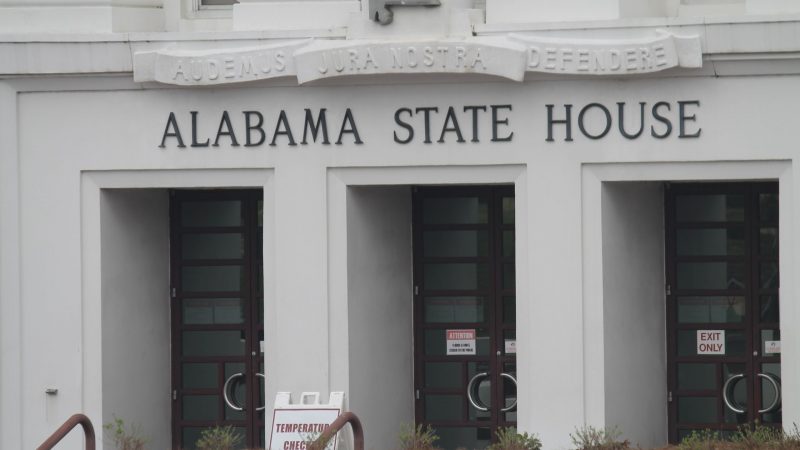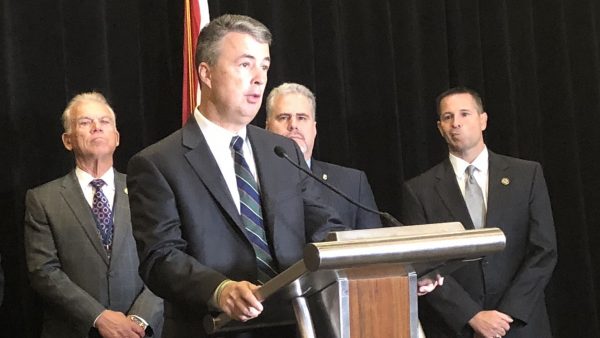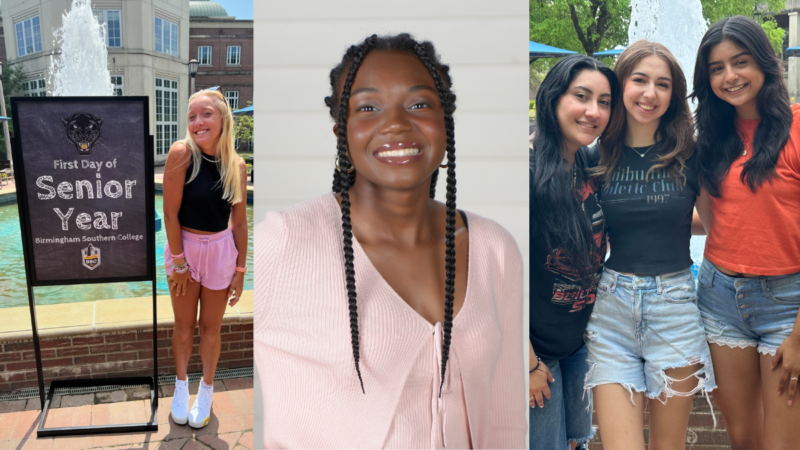Alabama’s Science Standards Get a Makeover
Alabama schools are getting new science standards for the first time in a decade. The state Board of Education voted unanimously today to replace old standards that some teachers say were behind the times the moment they were approved.
As evidence, they point to their students’ biology textbooks, many of which currently come with warning stickers that call evolution “a controversial theory.” The state’s old science standards say students should “wrestle with the unresolved problems still faced” by evolution.
“You might not accept it, but that doesn’t change the fact,” says science teacher Ryan Reardon, who isn’t a fan of the old standards. “Talking about evolution in a classroom is controversial, but there is no controversy about how all the organisms on the planet are related to each other.”
Reardon teaches at Jefferson County International Baccalaureate, one of the nation’s best public schools. He also helps write textbooks, and he and other science educators say Alabama’s old standards were dated and thin on evolution. Not so the new standards, which call it “established scientific knowledge.”
“We were really pleased to see that,” says Minda Berbeco, program director for the National Center for Science Education. She praises the shift to what she calls “a really positive, pro-science perspective.”
She’s not alone. All of the nearly two dozen Alabama science teachers I heard from support these new standards.
But what about that other little science debate that’s been roiling the nation’s cultural waters for years, climate change?
“I just don’t think it’s taught,” says Reardon. One reason, he says, is that “climate science is not something that a typical Alabama science teacher is going to have had as part of their training.”
Berbeco says there’s another reason it isn’t taught widely. “We’ve certainly worked with plenty of teachers who are really concerned about pushback just for teaching the science.”
The three-year run-up to these new standards, though, has been oddly light on pushback. There are a few obvious reasons why. They have the official backing of the Alabama Science Teachers Association. Also, at public hearings where citizens could voice their concerns, the state required comments to be about specific standards. Critics couldn’t simply oppose the whole effort on principle.
One more possible reason for the lack of controversy: While the new standards have a little more on climate change, they still don’t say humans are a cause. On that count, Berbeco is diplomatic:
“You know, I always feel like standards could be even better, and they could incorporate more concepts and more ideas. But this is a great starting point.”
Perhaps the biggest change in the new standards comes in a third area — the “doing of science” itself. There’s more focus on hands-on exploration, unifying concepts like cause and effect or structure and function, and a favorite of Reardon’s: data analysis.
“I’m gonna let the data smack ’em in the face,” Reardon says of his students. “I’m gonna ask them what that suggests, and then I’m gonna ask ’em what the ramifications are.”
This may be the biggest selling point with teachers.
“So with the new standards, students are gonna be able to experience science and not just solely learn about it from a textbook, lecture or a worksheet,” said Alabama’s Teacher of the Year, Jennifer Brown, at a recent public hearing.
Educators hope the emphasis on process and thinking will help kids better grasp all subjects, politicized or not.
9(MDA2ODEyMDA3MDEyOTUxNTAzNTI4NWJlNw004))
Alabama mine cited for federal safety violations since home explosion led to grandfather’s death, grandson’s injuries
Following a home explosion that killed one and critically injured another, residents want to know more about the mine under their community. So far, their questions have largely gone unanswered.
Crawfish prices are finally dropping, but farmers and fishers are still struggling
Last year’s devastating drought in Louisiana killed off large crops of crawfish, leading to a tough season for farmers, fishers and seafood lovers.
Lawmakers consider medical cannabis revamp
It’s been three years since Alabama lawmakers passed legislation establishing a system to govern medical cannabis in the state, yet not one prescription for the drug has been filled. The rollout has been delayed by lawsuits and conflict over the licensing process.
Man arrested in connection with device that exploded outside Alabama attorney general’s office
Kyle Benjamin Douglas Calvert, 26, of Irondale, Alabama, was arrested Wednesday on charges of malicious use of an explosive and possession of an unregistered destructive device, the U.S. attorney’s office said.
For some Gulf South schools, a March Madness loss can still be a win off the court
Making it into the NCAA Tournament can translate to boosts in student enrollment, athletic involvement, merchandise sales and more for participating schools.
‘A bad day to be a panther’: Students react to BSC’s closure
Birmingham-Southern College students learned about their school's closure while on Spring Break. When they returned to campus, their emotions ranged from frustrated to angry to sad.







